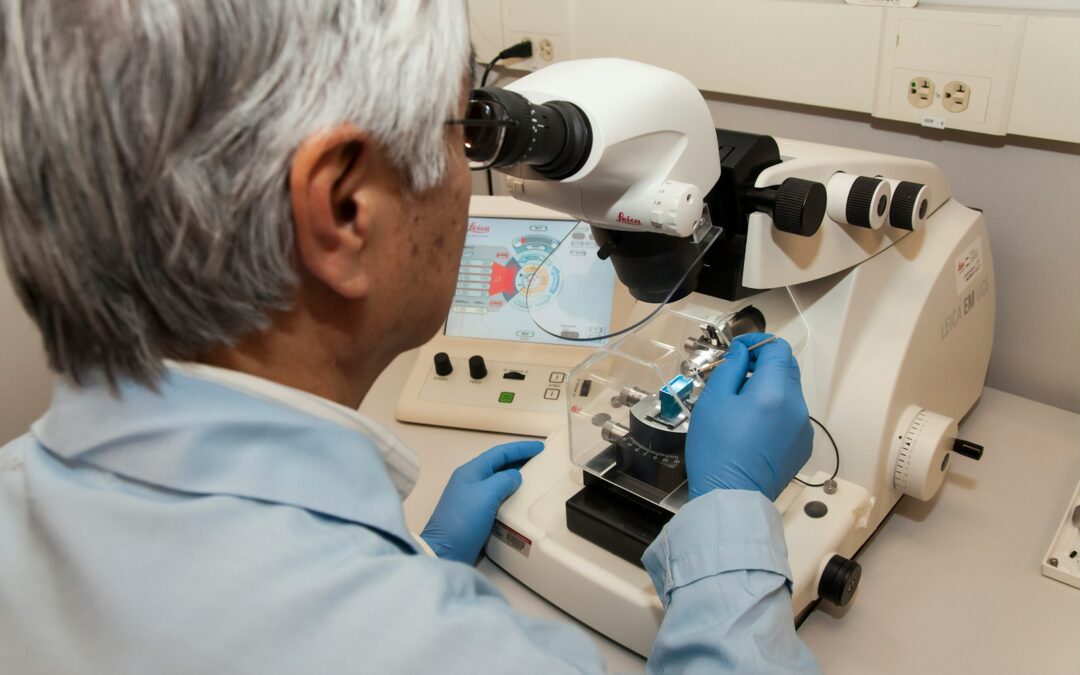How Regulatory Bodies in Saudi Arabia and the UAE Approach Genetic Engineering
Managing Risks in Genetic Engineering for Healthcare
Regulatory balance in genetic engineering is crucial for maximizing the benefits while minimizing the risks associated with this rapidly evolving field. In healthcare, genetic engineering offers transformative potential, from curing genetic disorders to advancing personalized medicine. However, these innovations come with significant ethical, safety, and social implications. Regulatory bodies in Saudi Arabia and the UAE play a vital role in navigating these complexities, ensuring that genetic engineering advancements are implemented safely and ethically.
In Saudi Arabia, regulatory bodies such as the Saudi Food and Drug Authority (SFDA) are responsible for overseeing the development and application of genetic engineering in healthcare. The SFDA implements stringent guidelines to ensure that any new genetic treatments are thoroughly tested for safety and efficacy before they are approved for clinical use. This involves rigorous clinical trials, continuous monitoring, and a robust approval process that prioritizes patient safety. By maintaining high standards, the SFDA helps mitigate the risks associated with genetic engineering, ensuring that only safe and effective treatments reach the public.
Similarly, the UAE has established regulatory frameworks to oversee genetic engineering in healthcare. The Emirates Authority for Standardization and Metrology (ESMA) and the Ministry of Health and Prevention (MOHAP) are key players in this domain. These bodies ensure that genetic engineering practices adhere to international standards and ethical guidelines. They focus on comprehensive risk assessments, public consultations, and ethical reviews to balance the potential benefits of genetic engineering against the risks. This approach not only safeguards public health but also fosters innovation by providing a clear regulatory pathway for new technologies.
Balancing Benefits and Risks in Agricultural Genetic Engineering
In agriculture, genetic engineering holds the promise of improving crop yields, enhancing nutritional content, and increasing resistance to pests and diseases. However, these benefits must be weighed against potential environmental and ecological risks. Regulatory bodies in Saudi Arabia and the UAE are tasked with ensuring that the introduction of genetically modified organisms (GMOs) into the environment is conducted responsibly and sustainably.
The Saudi Arabian Standards Organization (SASO) oversees the regulation of GMOs in agriculture. SASO’s guidelines are designed to prevent adverse environmental impacts, such as the unintended spread of modified genes to wild species or the development of new pests. By conducting thorough environmental impact assessments and implementing strict controls, SASO ensures that the benefits of agricultural genetic engineering are realized without compromising ecological integrity. This balanced approach supports agricultural innovation while preserving biodiversity.
In the UAE, the Ministry of Climate Change and Environment (MOCCAE) regulates the use of GMOs in agriculture. MOCCAE employs a precautionary approach, emphasizing the need for scientific evidence and risk assessments before approving the use of GMOs. This involves evaluating potential long-term effects on ecosystems, food safety, and human health. By prioritizing environmental protection and food security, MOCCAE ensures that genetic engineering in agriculture contributes to sustainable development. Their balanced regulatory framework supports advancements in agricultural biotechnology while addressing public and environmental concerns.
The Role of Advanced Technologies in Regulatory Oversight
Advanced technologies such as artificial intelligence (AI) and blockchain are playing an increasingly important role in enhancing regulatory oversight in genetic engineering. In Saudi Arabia and the UAE, these technologies are being integrated into regulatory processes to improve transparency, efficiency, and accuracy.
AI can assist regulatory bodies in predicting and analyzing potential risks associated with genetic engineering. By leveraging machine learning algorithms, regulators can assess vast amounts of data to identify patterns and predict outcomes, enabling more informed decision-making. In Riyadh and Dubai, where AI research is thriving, this technology supports regulatory bodies in managing the complexities of genetic engineering, ensuring that risks are identified and mitigated early in the development process.
Blockchain technology offers a secure and transparent platform for tracking the development and deployment of genetic engineering technologies. By providing an immutable record of all transactions and activities, blockchain enhances accountability and trust in the regulatory process. In Saudi Arabia and the UAE, blockchain is being used to monitor the lifecycle of genetic engineering projects, from research and development to market approval and post-market surveillance. This technology ensures that all stakeholders have access to reliable and transparent information, promoting ethical and responsible practices in genetic engineering.
#GeneticEngineering #RegulatoryBodies #Healthcare #Agriculture #RiskManagement #SaudiArabia #UAE #Riyadh #Dubai #AI #Blockchain #ExecutiveCoaching #ManagementConsulting #BusinessSuccess #Leadership #ProjectManagement

